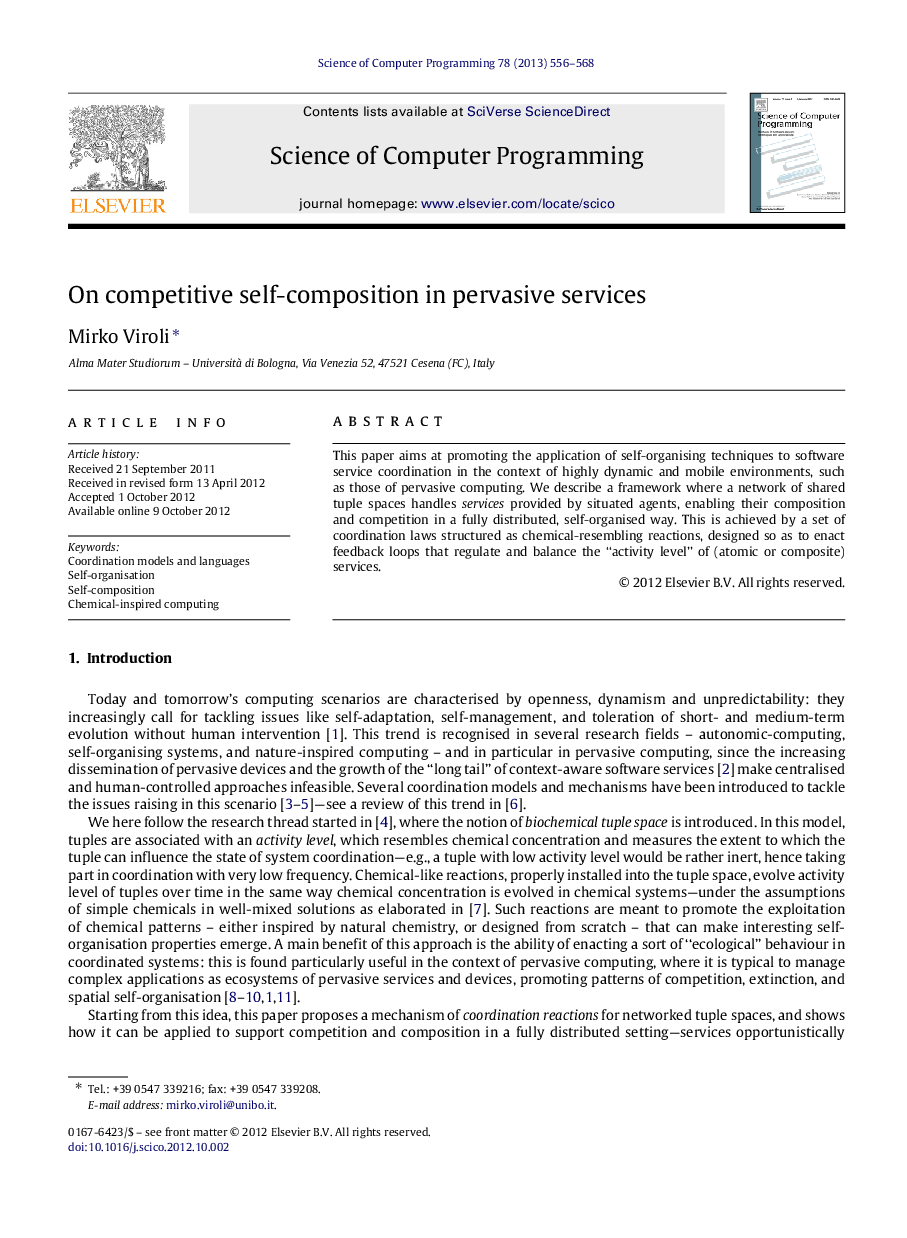| Article ID | Journal | Published Year | Pages | File Type |
|---|---|---|---|---|
| 433394 | Science of Computer Programming | 2013 | 13 Pages |
This paper aims at promoting the application of self-organising techniques to software service coordination in the context of highly dynamic and mobile environments, such as those of pervasive computing. We describe a framework where a network of shared tuple spaces handles services provided by situated agents, enabling their composition and competition in a fully distributed, self-organised way. This is achieved by a set of coordination laws structured as chemical-resembling reactions, designed so as to enact feedback loops that regulate and balance the “activity level” of (atomic or composite) services.
► We use chemical coordination rules for coordinating pervasive computing services. ► We support competition of pervasive services using by a prey–predator model. ► We support a self-organised form of composition of services. ► We compose remote services by dynamic paths toward sources.
